More than 3,000 families, predominantly Bajau Laut in Lahad Datu, have been living in fear of homelessness following the demolition of their homes, labelled as “squatter colonies” across Sabah, over the past two months.
Fearing the state government’s ambitious “Operation Squatter Colony” - which has already demolished more than 1,300 houses - will eventually catch up to their water villages, many are packed and ready to leave but have nowhere to go.
“The feeling in the village is generally that we are all on standby, ready to leave at any given moment,” said Ida (not her real name), a stateless Bajau Laut mother of four told Malaysiakini.
The seafaring indigenous woman in her 40s spoke to Malaysiakini through a translator and on assurance of anonymity, fearing state reprisal.
Having lived mostly on the water in a houseboat for decades, she parted with her vessel five years ago after it became irreparable.
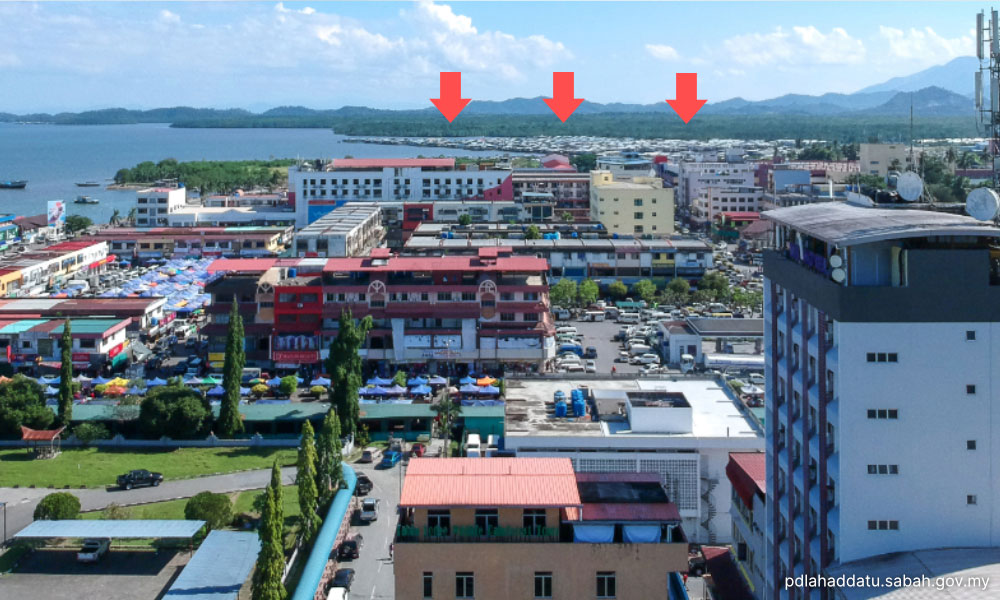
She then reluctantly settled into a shack on stilts planted into the seabed in Kampung Panji, Lahad Datu.
Looming humanitarian crisis
Evictions of Bajau Laut residents in the past month hit the headlines when local activist Mukmin Nantang shared the torching of one home by authorities, triggering outrage online.
Mukmin, who heads the NGO Borneo Komrad, and other activists had after that tried to hold blockades to stop similar evictions. He is now being investigated for sedition.
The evictions started in March after Deputy Chief Minister II Joachim Gunsalam announced that authorities would evict most of the 130,397 people reported to be living in the 285 targeted “squatter colonies” by 2025.
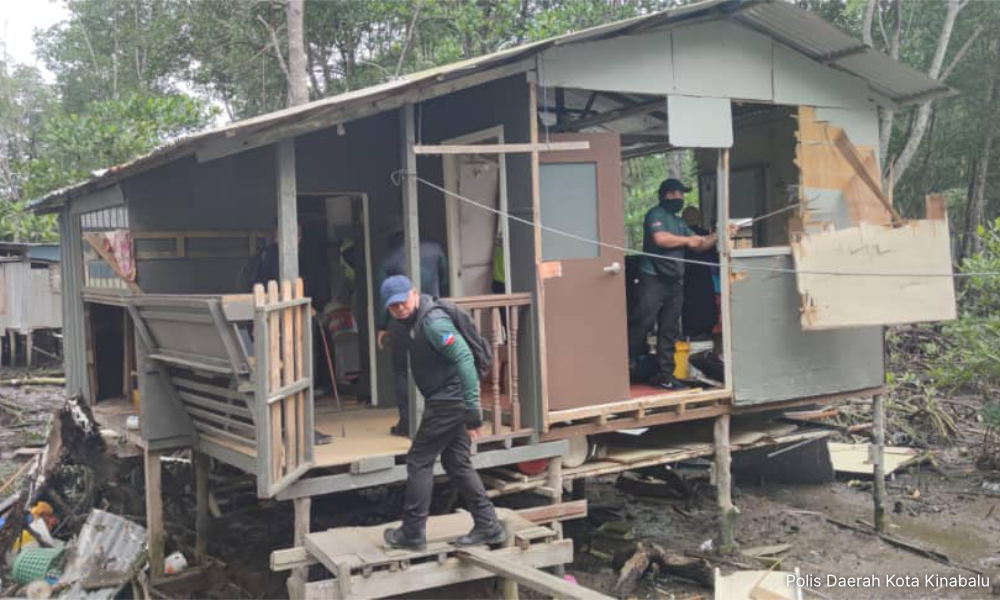
Activists working with the community told Malaysiakini they fear the state’s squatter eradication could lead to a humanitarian crisis, including cutting off access to necessities like fresh water.
“If displaced residents seek shelter in unsanitary locations, the lack of adequate healthcare could lead to adverse health issues,” one healthcare worker who has six years experience in Sabah said.
Quoting the United National Declaration on the Rights of Indigenous People, the medical official said: “The Bajau Laut were indigenous people and it was the state’s responsibility to protect them from any form of forced population transfer.”
No relocation plan
Mandiri Borneo, a coalition of 126 NGOs, is a vocal critic of the mass evictions.
Its director, Wong Kueng Hui, said mass evictions without a clear relocation strategy have severe economic and social impacts on the community and society.
Thus far, the plan involves evicting those occupying government land and properties owned by statutory bodies, specifically the state-owned Palm Oil Industrial Cluster Sdn Bhd.
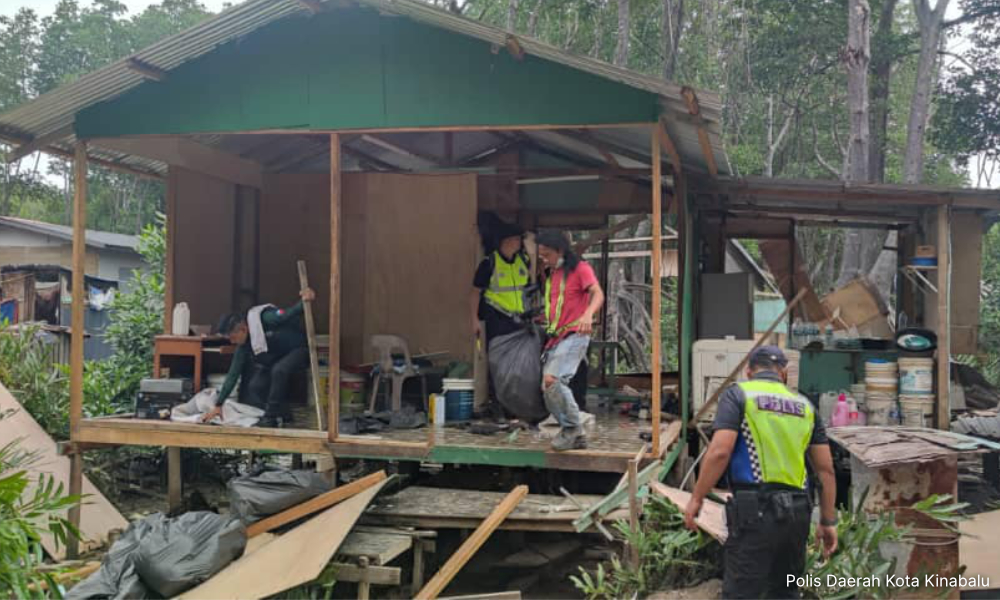
The operation doesn’t only affect the stateless. Citizens caught up in the dragnet appealed to the authorities and have been given an additional three months to move but no relocation plan was offered.
Those without national identity cards are declared undocumented and ordered to return to their respective countries of origin, although many say they have lived in Malaysia for generations.
The Bajau Laut community had been residing in Sabah’s waters predating the formation of Malaysia.
Evicted for development
Joachim has not responded to Malaysiakini’s query and Wong said it is unclear where the evicted families have moved to.
“The government has not devised a short-term or long-term plan to solve this issue. I don't see how these evictions can benefit our economy,” he said.
Wong also fears Joachim’s “zero squatter colony” ambitions may have a deadline sooner.
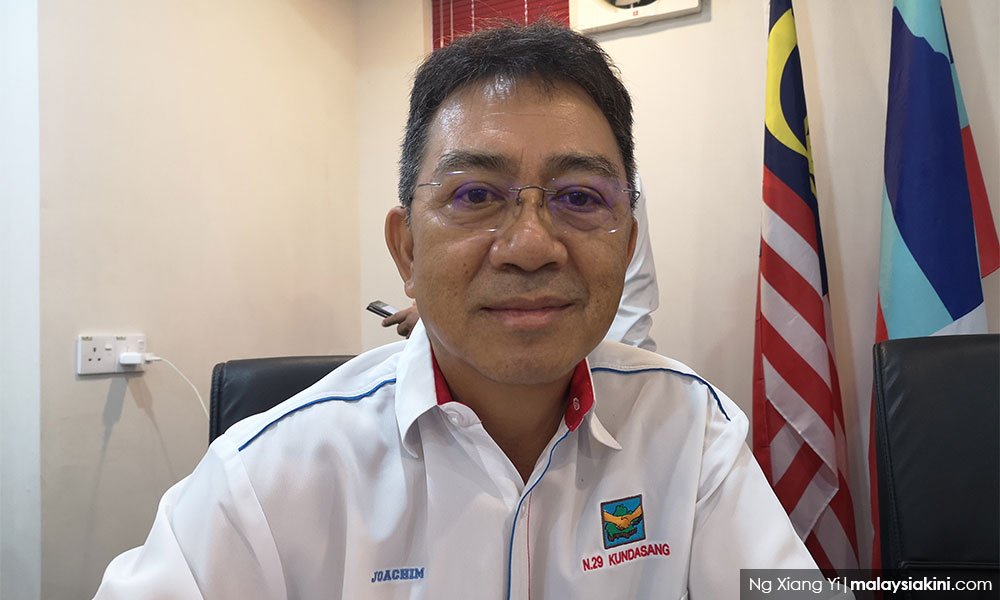
During his visit to Sabah at the end of May, Prime Minister Anwar Ibrahim urged the state to eliminate hardcore poverty within the next two months, noting that the number of affected individuals had already dropped from 20,000 to 9,000.
“Four days after his (Anwar’s) call to eradicate hardcore poverty, seven Bajau Laut villages in Semporna were demolished,” Wong observed.
Strikingly, nine days after the evictions, Joachim announced plans to develop three-star and four-star hotels, offices, and walkways in those parts of Semporna.
Joachim emphasised the urgency of starting these development projects, which hinge on the relocation of squatters from land owned by the Housing and Urban Development Board.
“It will take time,” The Borneo Post quoted Joachim as saying after signing an agreement between the board and the developer Cepat Hebat Sdn Bhd.
Protests and arrests
Since the Semporna incident, Mandiri Borneo has vowed to protect the Bajau Laut throughout Sabah, promising to take to the streets if the state continued to oppress them.
“Suddenly, without notice, authorities showed up to demolish the Bajau Laut houses, declaring the settlements illegal,” said Wong of the evictions in Semporna.
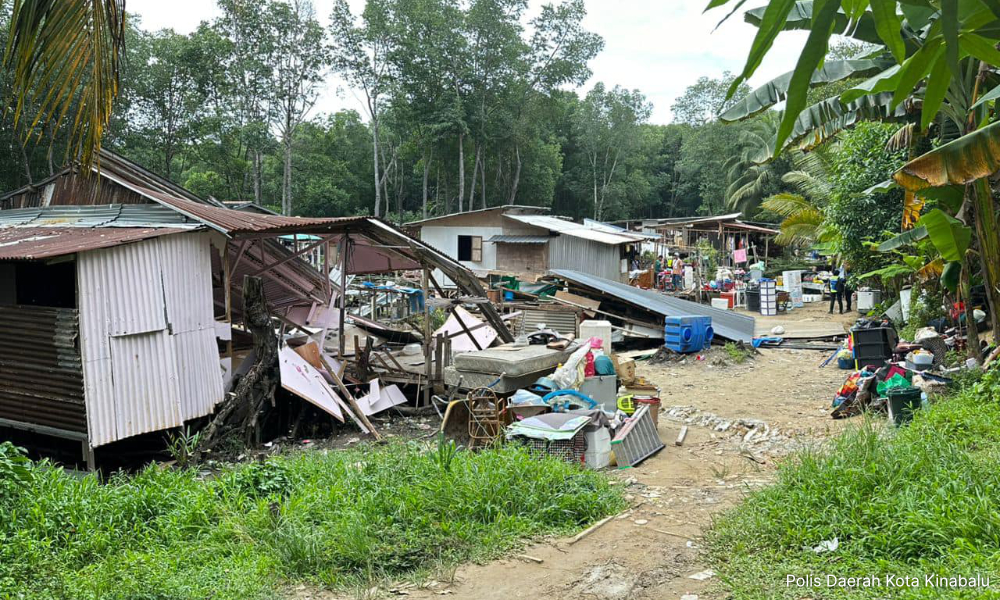
A peaceful protest outside the Sabah Chief Minister Hajiji Noor’s office in Kota Kinabalu following the evictions resulted in the arrest of a teacher and eight stateless students, charged under the Peaceful Assembly Act 2012.
“Hajiji said he would help them (those evicted in Semporna) later but has not explained how,” Wong said.
While official reports claim 15 homes were demolished in Semporna, local NGOs dispute this, alleging that at least 44 houses have been destroyed.
Suhakam has confirmed it will visit the location this week to investigate the claims and the evictions. - Mkini

No comments:
Post a Comment
Note: Only a member of this blog may post a comment.